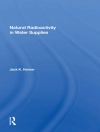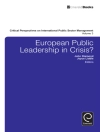This book deconstructs the equation of nationalism with the extreme right in Russia. Nationalism now extends throughout all ofthe countryand can not be seen as a phenomenon confined to the margins of society. This study rejects the interpretation that understands Kremlin-backed patriotism as simply part of a fascist trend in Russia and as a rapprochement between the political authorities and the extreme right. A simplistic analysis of such a paradoxical phenomenon addresses neither the basic issue of social consensus nor that of the inherent relationship between national identity and citizenship.
Tabela de Conteúdo
PART I: MOBILIZING AGAINST THE OTHER: FROM THE EXTREME RIGHT TO MASS XENOPHOBIA The Soviet Origins of Russian Nationalism The Evolution of Political Radicalism, 1990-2000 On the Impossibility of a Typological Classification In Quest of Social Mobilization: The Skinhead Phenomenon Anti-Immigration: the Long-Awaited Ideological Consensus Xenophobia: a Mass Phenomenon in Russia PART II: A POLITICAL ENVIRONMENT SHAPED BY THE NATIONALIST REFERENT ‘Identity Populism’: The Communist Party and Liberal-Democratic Party Rodina, the New Face of Uncomplicated Nationalism Patriotic Centrism Under the Auspices of the Kremlin United Russia or Nomenklatura Nationalism PART III: THE MOTHERLAND, A NEW SOCIAL CONTRACT? Rediscovering Pride: The Rehabilitation of the Motherland The Army as a Metaphor for the Nation: Patriotic Education Programs Promoting Symbolic Capital: the Orthodox Church Reorganizing the Associative Fabric: the Youth Movements Thinking the Nation in its Complexity: Doctrinal Debates inthe Kremlin
Sobre o autor
MARLÈNE LARUELLE
is a Research Fellow at the Central Asia and Caucasus Institute, SAIS, Johns Hopkins University, UK.












